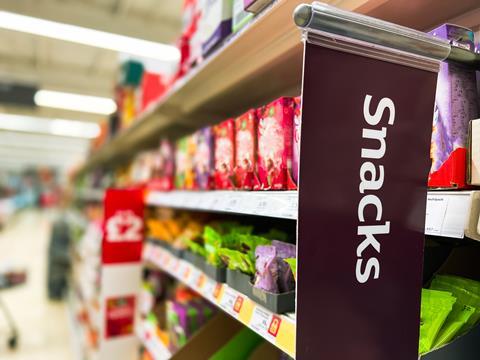
A damning report has revealed how government ministers botched the introduction of the HFSS promotions ban – and then allowed its impact to be damaged further by almost non-existent enforcement.
The first independent analysis of the ban on HFSS promotions found that two million fewer junk food items were sold every day. But researchers from the University of Leeds concluded that the ban could have resulted in a much bigger shift with more effective legislation and better coordination from government.
And while a “significant step change” reduction was seen in two out of three major retailers whose data was used for the outcome findings, a third saw no significant reduction.
The report urged the government to embark on a more joined-up and strongly enforced HFSS clampdown, which would put reducing junk food consumption on a par with policies on cigarettes and alcohol.
The report says it is “critical” for ministers to introduce an open, regularly updated food composition database which could be used for mandatory reporting to show the effectiveness of HFSS policy, as now promised by the government via its 10-year NHS plan. It then suggests supermarkets should lead transparent and regularly reported trials to show how shoppers can be nudged towards healthier choices.
But it also calls on ministers to bring forward legislation making it legally binding for retailers to use prominent locations to promote only healthy and affordable foods to make shoppers’ baskets healthier and cheaper.
| HFSS sales percentage by weight | HFSS sales percentage by volume | |
|---|---|---|
| Source: University of Leeds Notes: interrupted time series analysis of HFSS products as a proportion of total sales in 480 stores in England by weight and unit volume. Prior to the legislation in-scope HFSS products made up 9.4% of total sales by weight and 19.5% by unit volumes |
||
| Retailer A | -0.88 | -1.18 |
| Retailer B | 0.07 | -0.21 |
| Retailer C | -0.87 | -1.33 |
Professor Michelle Morris, who led the report, said that despite its shortcomings the HFSS legislation had been a “force for good” that had led to a “significant reduction in sales of in-scope HFSS products”.
But she added: “More now needs to be done to make healthy and sustainable diets the easy choice for our population, so that we can shift more people’s eating habits towards the national recommendations of the Eatwell Guide.”
In July The Grocer exclusively revealed that health secretary Wes Streeting planned to scrap the HFSS promotions ban under his new 10-year-plan for the NHS, even though the delayed second part of the legislation, a ban on multibuys including buy one get one free (bogof) promotions, doesn’t come into force until October.
Professor Morris said the study highlighted the need for strong evidence to back up all HFSS legislation. She urged ministers to ensure the National Food Strategy brought in a joined-up approach across government that gave greater resources to the efforts to improve diets.
Researchers were given unparalleled access to supermarket sales data with store level sales from Asda, Morrisons, Sainsbury’s and Tesco, as well as in-depth interviews with management and staff.
Sales data from over 840 stores in England, Scotland and Wales was analysed in the study, but narrowed down to 630 stores after delays from a third party auditor meant one retailer’s figures had to be discounted. On average, the proportion of HFSS sales from the 13 categories covered in the other three fell by 0.63 percentage points.
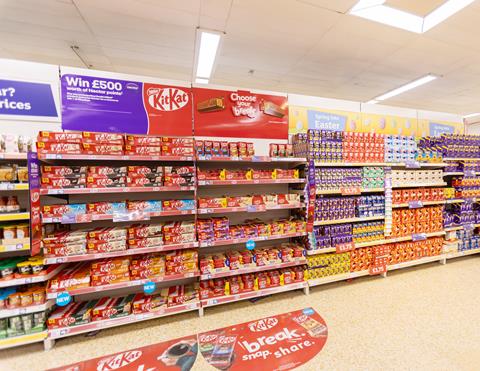
‘Enormous’ impact
Researchers said while the fall might seem “relatively modest ” at first, the impact was “enormous” when translated into the 14 million fewer HFSS products sold each week at all eligible stores in England because of the ban.
However, a source told The Grocer, there was frustration over the relatively limited impact: “There are different ways to look at [the sales data]. Yes, it is a lot of products that weren’t sold, but imagine what retailers could have achieved with the millions and enormous amount of time invested in this mishandled government intervention.”
The three remaining retailers involved in the study also slammed the “insufficient guidance“ given by the DHSC to support the proposals, with supermarkets saying the impact of repeated delays and lack of detailed guidance meant when the ban did eventually come in it still ended up being “rushed”.
And while some supermarkets had more than 200 staff contributing to efforts to comply with the changes, much of their work involved making physical store layout changes to bring stores out of scope of the legislation, rather than actively working to replace HFSS products with healthier ones.
There was also mass confusion over what products were included in the ban and how it applied to store layouts.
The study said retailers, the BRC, and enforcement officers believed an “absence of co-production with the sector” during the legislation development resulted in “a lack of understanding of the complexities of the retail environment both online and in-store, and of how the legislation could be enforced.”
In the end, rather than wait any longer for the government, retailers were forced to go it alone with their own interpretation of the laws, it found.
“All the supermarkets and their primary authorities met up and we issued our own guidance because we could no longer wait for the final guidance to come out from the Department of Health,” said a source quoted in the research. “It was incredibly frustrating.”
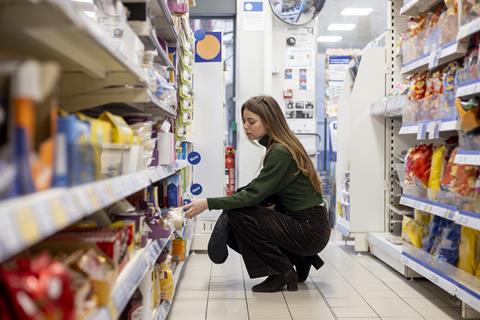
Lack of enforcement
The report also criticised the lack of enforcement of the ban. Three of the four retailers reported receiving enforcement checks to investigate compliance, but the visits were “minimal” and “ceased completely” after the first few months.
None of the retailers received notification, warnings or fines in relation to non-compliance.
“Our findings show there needs to be sufficient resources to support enforcement, such as providing adequate training, data access and funding to facilitate enforcement such as in environmental health,” the report concluded.
The authors did not specify which supermarkets had achieved the biggest successes with the reduction in HFSS sales.
However, the BRC said supermarkets were “proud” of the part they had played to try to make baskets healthier, despite the barriers put in their way by the shambolic introduction.
“The BRC played a strong role in supporting its members through this complex process,” said Andrea Martinez-Inchausti, assistant director of food and sustainability.
“The industry continues to strive to offer its customers good value across a wide range of healthier options,” she added.
The IGD, which funded part of the research, added that the report was a worthwhile exercise and showed that government legislation had a “significant impact on sales”.
Read more:
-
Children face avalanche of HFSS promotions from social media influencers
-
Holie’s wins court battle against Lotus Bakeries over sugar callout
-
Will IGD’s role derail food strategy before it’s even started?
-
Less processed diet may be more beneficial for weight loss: study
IGD director of health & sustainability Kirsty Saddler said: “This independent evaluation of HFSS placement regulation is an important piece of work to better understand the impact that government policy has on behaviour change. Over a three-year period, we connected industry, academia, and government, helping translate academic research into industry-relevant resources that drive action. This marks the first independent evaluation of HFSS legislation. It demonstrates that the legislation has a significant impact on sales.”
She also stressed the further impact of the legislation “beyond sales” data.
“We know industry reformulated and innovated at scale to make their products non-HFSS. This research was unable to capture the impact of reformulation alongside sales, [but] we know that these small, cumulative, sustainable behaviour changes for customers can lead to significant impacts over time.”








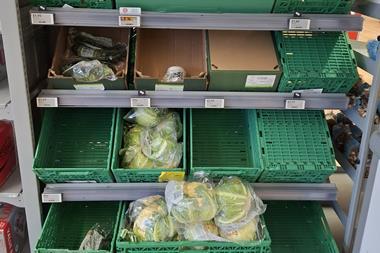







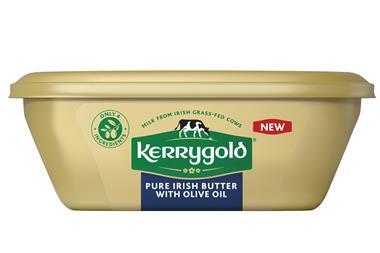
1 Readers' comment